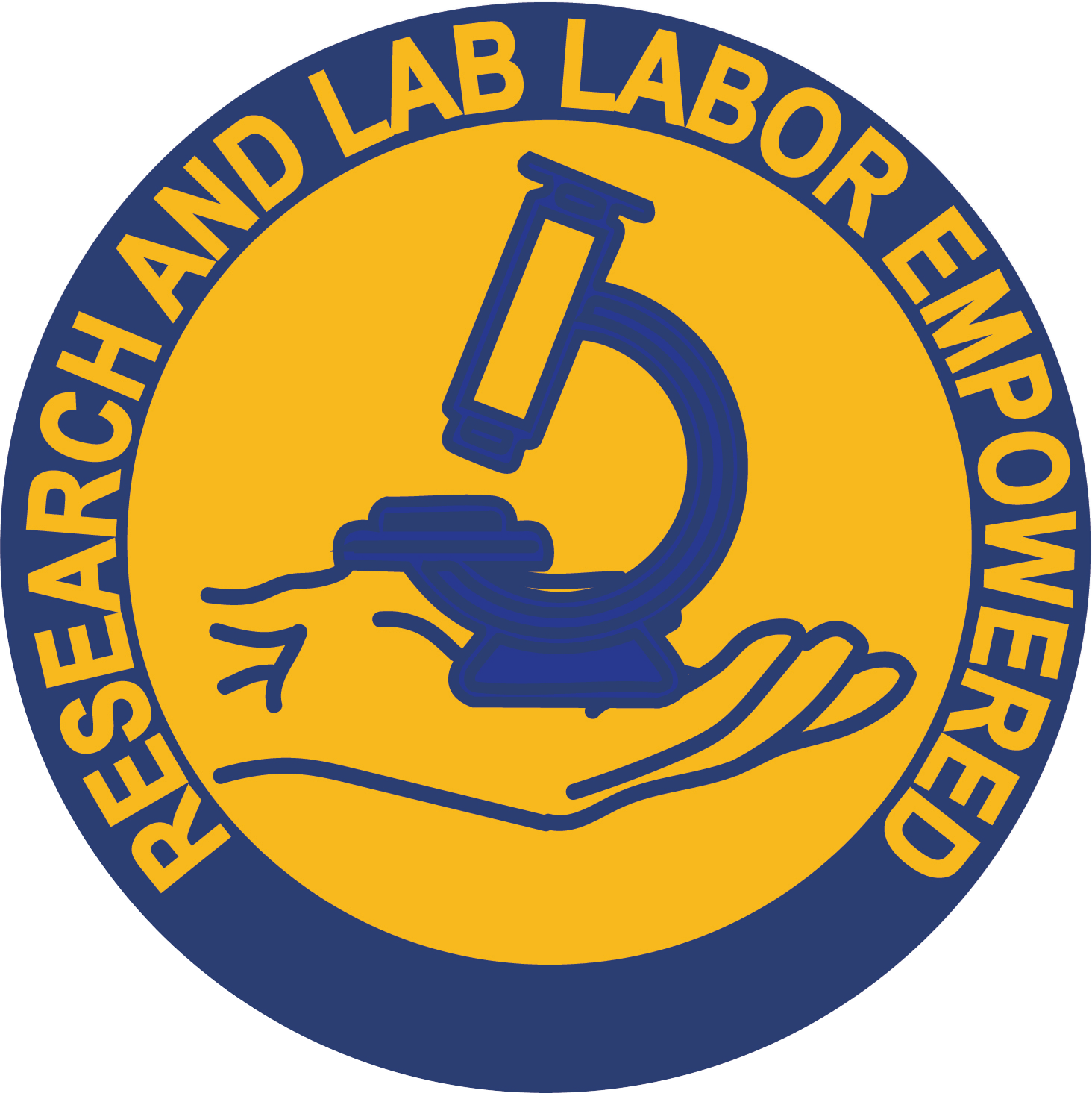Frequently Asked Questions
What is RALLE?
RALLE (Research and Lab Labour Empowered) is a movement of research and lab staff at Johns Hopkins University organizing a union to win improvements in our working conditions and demand dignity, respect, and a contract. We are affiliated with United Electrical, Radio, and Machine Workers (UE).
Who is UE?
The United Electrical, Radio and Machine Workers of America (UE) is a democratic, rank-and-file union with a long history of fighting for workers’ rights since the 1930s. UE is known for its member-driven structure and advocacy for social justice. UE represents academic workers across the country and believes that unions are for everyone.
What is a union and why do we need one at JHU?
A union gives workers collective bargaining power to negotiate the terms of our employment. Without a union, the university has unilateral control over our salaries, benefits, and working conditions. A union contract guarantees a minimum baseline of compensation, workplace expectations, and protection for research staff members across campuses.
Do other research staff unions exist?
Yes! Research staff and postdocs are unionized at many universities including Columbia, the UC system, University of Pennsylvania, Rutgers, and even other units at Johns Hopkins. Graduate students at JHU formed TRU-UE and successfully negotiated their first contract.
Who can join RALLE?
Research staff and lab workers employed by Johns Hopkins University who work on scientific research projects. This includes research associates, lab technicians, research coordinators, and similar positions who are not supervisors or managers.
Can international workers join?
Yes! Section 7 of the National Labor Relations Act (NLRA) protects the organizing rights of all workers regardless of visa status or immigration status. International workers have the same legal rights to organize as citizens and residents.
What are the steps to unionization?
- Build an organizing team
- Gather authorization cards from workers
- Seek recognition from the employer
- Hold a representation election
- Elect union leadership
- Negotiate a contract
How can I get involved?
You can:
- Fill out our interest form to register your interest
- Sign up for an info session to learn more
- Join the organizing committee to help build the movement
- Talk to your coworkers about unionizing
Can the university retaliate against workers for unionizing?
No. The National Labor Relations Act protects workers’ rights to organize and join unions. Retaliation against workers for union activity is illegal. If you experience retaliation, contact the organizing committee immediately.
Will unionizing affect my relationship with my PI or supervisor?
The NLRA protects organizing activities from retaliation. Contract negotiations occur with university administration, not individual PIs or supervisors. A union aims to improve working conditions that support high-quality research, not to interfere with the research process or mentor relationships.
Are there membership fees?
There are no fees or dues until after a contract has been negotiated and ratified by the membership. Once dues begin, members typically pay a small percentage of gross compensation (usually around 1.4-1.5%). These dues fund union operations and support services for members.
Do I have to pay dues?
Members pay dues and gain full voting rights and participation privileges in union governance. Non-members may be required to pay equivalent agency fees depending on the contract. Only members can vote on contract ratification and union decisions.
Will salary increases hurt lab funding or PI grants?
Universities like Princeton and MIT have funded stipend increases through institutional budgets rather than burdening individual research labs. Johns Hopkins has substantial resources including a large endowment and significant overhead revenue from grants that can support improved compensation without impacting individual lab budgets.
How can Hopkins afford better compensation for research staff?
Hopkins controls substantial overhead revenue from grants, holds a multi-billion dollar endowment with significant unrestricted reserves, and regularly reports budget surpluses. The university has the financial capacity to improve research staff compensation and working conditions.
What issues is RALLE focusing on?
Our key issues include:
- Fair compensation
- Uniform job descriptions
- Transparent career paths
- Overtime pay
- Job security and transitional funding
- Commuter benefits
What is a union contract?
A union contract is a binding legal agreement between the employer and employees that establishes minimum standards for compensation, benefits, and working conditions. The contract is negotiated collectively and must be ratified (approved) by union members before taking effect.
Will we have to go on strike?
Strikes require authorization from a supermajority of members. Many academic unions have successfully negotiated strong contracts without ever going on strike. A strike is always a democratic decision made by the membership.
How do I become a member?
Once we have a ratified contract, you can become a member by completing a membership authorization form and agreeing to pay monthly membership dues. Members gain voting rights and full participation in union governance.
What happens after we vote to unionize?
After a successful union election, we will:
- Elect a bargaining committee from among the membership
- Survey members about priorities for contract negotiations
- Negotiate a first contract with the university
- Bring the proposed contract back to the membership for ratification
- Once ratified, the contract goes into effect
Where can I learn more?
- Attend an info session
- Fill out our interest form
- Email us at info@rallejhu.org
- Check out TRU-UE’s experience as graduate students at JHU
- Learn about UE’s work with postdocs
